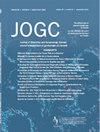加拿大产前、产后和新生儿免疫血液学检测指南:修改德尔菲过程的共识建议。
IF 2.2
Q2 OBSTETRICS & GYNECOLOGY
引用次数: 0
摘要
目的:血型、抗体筛查、胎母出血(FMH)试验和Rh(D)免疫球蛋白(RhIG)给药是孕期干预措施,有助于预防胎儿和新生儿溶血性疾病(hddn)。由于为标准制定提供信息的数据有限,各个中心的测试时间、频率和性质各不相同。本研究采用德尔菲法,旨在为加拿大产前、产后和新生儿免疫血液学检测和RhIG给药建立指导方针,以降低HDFN的风险并提高诊断水平。方法:一个全国性的、多学科的德尔菲小组在反复投票的过程中,以5分李克特量表评估他们与产前、产后和新生儿免疫血液学测试相关的潜在指导声明的一致程度。每轮之后,对反馈进行分析,并将陈述重新发送给小组进行进一步评级,直到达成共识,定义为Cronbach的alpha >.95或最多三轮投票。在德尔菲过程结束时,评分≥4/5的陈述被纳入。结果:46位专家对49项提案进行了投票。3轮调查后达成共识(Cronbach's alpha = 0.94),整个调查的回复率为100%。44项声明达成共识。声明集中在产前免疫血液学测试(N = 21),妊娠期间FMH测试和RhIG给药(N = 15),以及新生儿继发于HDN的高胆红素血症监测测试(N = 8)。结论:这份加拿大共识指南旨在优化对有HDFN风险的妊娠的监测以及RhIG给药的剂量和时间。它提供了可行的建议,以协调实践并支持安全、及时和具有成本效益的护理。本文章由计算机程序翻译,如有差异,请以英文原文为准。
Guidance for Prenatal, Postnatal and Neonatal Immunohematology Testing in Canada: Consensus Recommendations from a Modified Delphi Process
Objectives
Blood Group, antibody screen, fetal maternal hemorrhage tests and Rh(D) immunoglobulin (RhIG) administration are interventions during pregnancy that aid in the prevention of hemolytic disease of the fetus and newborn (HDFN). The timing, frequency, and nature of testing vary across centres due to limited data to inform standards development. Using Delphi methodology, this study aimed to establish guidance for Canadian practice related to prenatal, postnatal and neonatal immunohematologic testing, and RhIG administration, to reduce risk and improve diagnosis of HDFN.
Methods
A national, multidisciplinary Delphi panel rated their agreement with potential guidance statements related to prenatal, postnatal and neonatal immunohematology testing on a 5-point Likert scale during iterative rounds of voting. After each round, responses were analyzed and statements were re-sent to the panel for further ratings until consensus was achieved, defined as Cronbach’s α >0.95 or a maximum of 3 voting rounds. At the conclusion of the Delphi process, statements rated ≥4/5 were included.
Results
In total, 46 experts voted on 49 proposed statements. Consensus was achieved after 3 survey rounds (Cronbach’s α = 0.94), with a 100% response rate throughout. Overall, 44 statements reached consensus. Statements focused on prenatal immunohematology testing (N = 21 statements), maternal–fetal hemorrhage testing and RhIG administration during pregnancy (N = 15), and testing of neonates for surveillance of hyperbilirubinemia secondary to hemolytic disease of the newborn (N = 8).
Conclusions
This Canadian consensus guidance aims to optimize the surveillance of pregnancies at risk of HDFN and the dosing and timing of RhIG administration. It provides actionable recommendations to harmonize practice and support safe, timely, and cost-effective care.
求助全文
通过发布文献求助,成功后即可免费获取论文全文。
去求助
来源期刊

Journal of obstetrics and gynaecology Canada
OBSTETRICS & GYNECOLOGY-
CiteScore
3.30
自引率
5.60%
发文量
302
审稿时长
32 days
期刊介绍:
Journal of Obstetrics and Gynaecology Canada (JOGC) is Canada"s peer-reviewed journal of obstetrics, gynaecology, and women"s health. Each monthly issue contains original research articles, reviews, case reports, commentaries, and editorials on all aspects of reproductive health. JOGC is the original publication source of evidence-based clinical guidelines, committee opinions, and policy statements that derive from standing or ad hoc committees of the Society of Obstetricians and Gynaecologists of Canada. JOGC is included in the National Library of Medicine"s MEDLINE database, and abstracts from JOGC are accessible on PubMed.
 求助内容:
求助内容: 应助结果提醒方式:
应助结果提醒方式:


